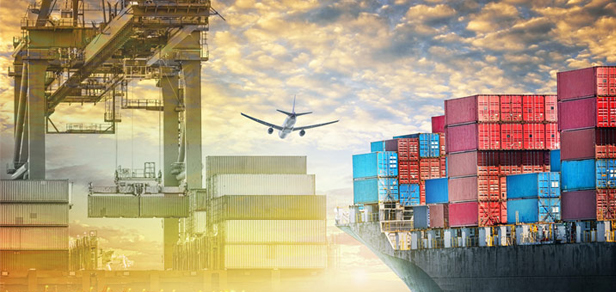News March 16, 2022
Feds to Launch Supply Chain Information Exchange
The goal of the voluntary digital initiative is to make America’s supply chain flow more efficiently, thereby getting goods to destinations faster and lowering costs, officials said.
President Joe Biden’s administration has launched a new program that aims to unclog persistent logjams in the U.S. supply chain through a digitally driven initiative focused on improved logistics information-sharing among ports, importing businesses large and small, transport companies, and other key players in the supply network.

Announced Tuesday, March 15, the Freight Logistics Optimization Works (FLOW) is a pilot program that includes the U.S. Department of Transportation (DOT) and 18 initial participants, such as Target, FedEx, UPS, the ports of Los Angeles and Long Beach, True Value, trucking company CH Robinson, ocean carrier MSC, and terminal operator Fenix Marine Terminal.
The initial collaboration among the stakeholders has a goal of producing a proof-of-concept freight information exchange for the American supply network by the end of summer 2022. The objective of the exchange is to “ease supply chain congestion, speed up the movement of goods and ultimately cut costs for American consumers,” the Biden administration said.
DOT would serve as information brokers for various parts of the supply chains, sharing things like when cargo is expected to arrive at a certain port and which containers have products marked for delivery at different destinations. Such visibility on the supply chain could help overcome coordination challenges but would be contingent on companies voluntarily sharing the information with DOT.
Sourcing pros in the promotional products industry that ASI Media spoke with said the FLOW concept isn’t bad in theory. Some are optimistic. Jeffrey Nanus, CEO of New Jersey-based supplier AAA Innovations (asi/30023), said “having key stakeholders from each affected sector involved to build better communications sounds like a great idea. This will certainly increase the transparency of the issues and could help alleviate some of the problems.”
Others are more muted in their expectations.
While the information shared would be anonymous, according to the government, some promo supply chain experts think companies will be loath to share data.
“I am cautious in my expectations,” David Miller, president of New York-based Top 40 supplier NC Custom (asi/44900) and a member of Counselor’s Power 50 list of promo’s most influential people, told ASI Media. “Historically competitors have not been very motivated and forthcoming to go all-in via this type of information-sharing initiative, even though there will be anonymity.”
Still, proponents have noted that similar systems have worked in other government agencies. The Federal Aviation Administration aggregates information focused on aircraft safety, for instance. As COVID-19 gripped the nation, the Department of Health and Human Services created a “control tower” where important information was shared by companies about medical supplies and equipment.
Supply chain problems that include port congestion, inadequate cargo container capacity, exponentially more expensive containers, domestic truck and rail issues, and more have contributed to inventory shortages and higher product prices in the promo industry over the last year or so. A COVID-19 surge that’s prompting societal lockdowns in China is poised to deliver more blows to the supply networks of promo and other industries.
